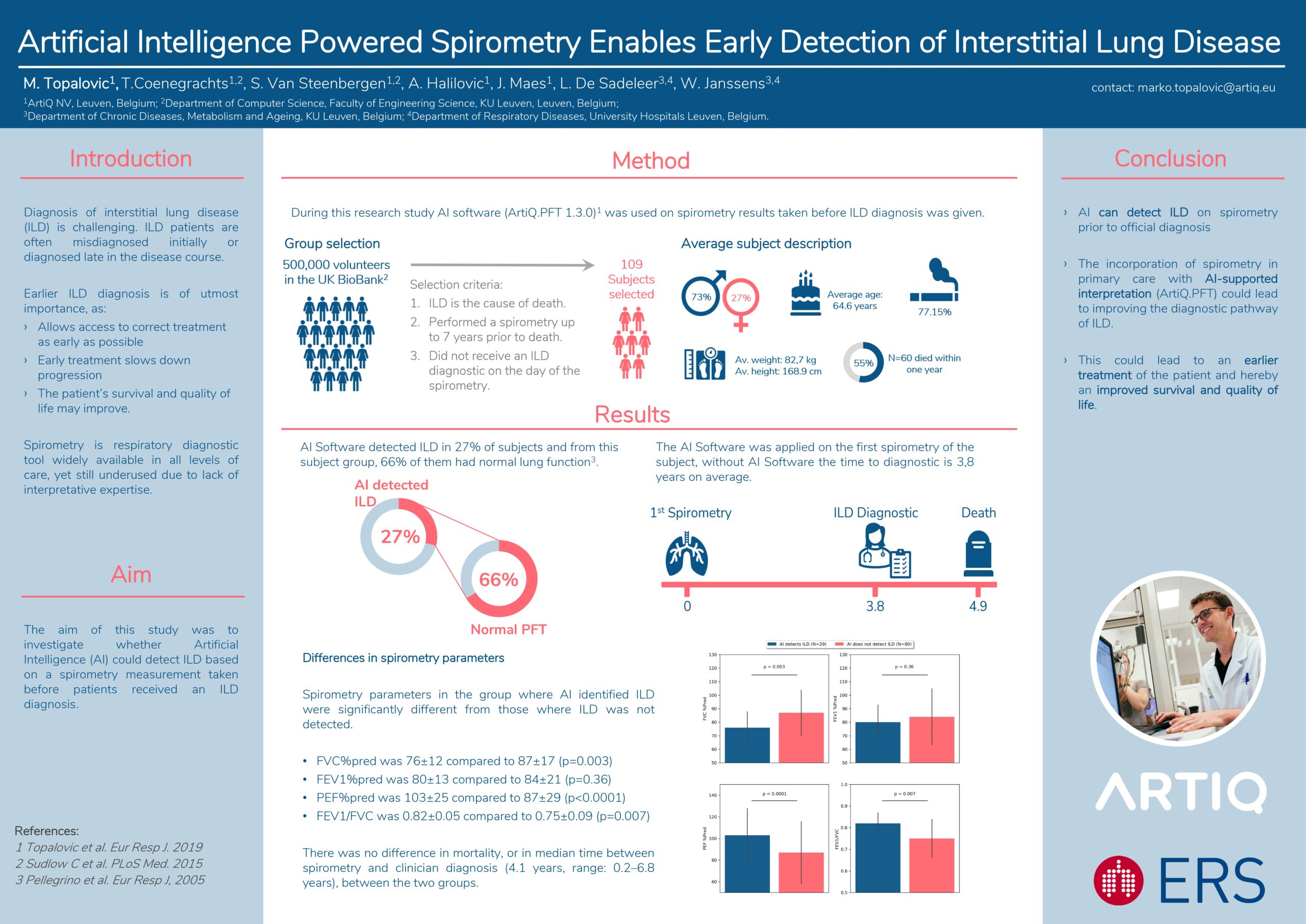Early detection of interstitial lung disease using artificial intelligence powered spirometry.

Read the official abstract here.
Rationale
Interstitial lung disease (ILD) patients are often misdiagnosed or diagnosed late. Earlier diagnosis allows earlier access to correct treatment, consequently improved survival and quality of life. We investigated if Artificial Intelligence (AI) software can detect patterns of ILD on spirometry earlier to formal diagnosis.
Methods
All subjects from UK Biobank with ILD as cause of death but without clinical ILD diagnosis at the time of spirometry, were selected (N=109). Spirometry data and subject demographics (gender, age, BMI, race, smoking) were input to an AI clinical decision support software (ArtiQ.PFT), which calculates a probability of having present one of lung diseases.
Results
Time interval between last recorded spirometry and clinical ILD diagnosis was 3.8±1.9 years, with additional 1.1±1.2 years to ILD dead. AI detected ILD in 27% of subjects (N=29), 3.8±2.1 years prior to ILD diagnosis through standard care. 66% (N=19) of these subjects had normal lung function, 34% (N=10) were restrictive. In remaining 73% (N=80), AI most commonly pointed to no disease (39%) or was uncertain (18%). Spirometry data in the group where AI identified ILD were significantly different from those where ILD was not detected [FVC%pred 76±12 vs. 87±17 (p=0.003), FEV1%pred 80±13 vs. 84±21 (p=0.36), PEF%pred 103±25 vs. 87±29 (p<0.0001), FEV1/FVC 0.82±0.05 vs. 0.75±0.09 (p=0.007)]. There was no difference in time to mortality, nor in time between spirometry and clinical diagnosis among groups.
Conclusion
In one quarter of patients, AI detected ILD many years before clinical diagnosis. Most had lung function within normal ranges, suggesting that AI may detect ILD prior to standard spirometry interpretation. With further validation, merging AI-support and regular spirometry testing may lead to earlier ILD diagnosis.
Authors
Marko Topalovic1, Tomas Coenegrachts1,2, Seppe Van Steenbergen1, 2, Armin Halilovic1, Julie Maes1, Laurens De Sadeleer3,4, Wim Janssens3,4
[1] – ArtiQ NV, Leuven, Belgium
[2] – Department of Computer Science, Faculty of Engineering Science, KU Leuven, Leuven, Belgium
[3] – Department of Chronic Diseases, Metabolism and Ageing, KU Leuven, Leuven, Belgium.
[4] – Department of Respiratory Diseases, University Hospitals Leuven, Leuven, Belgium.
